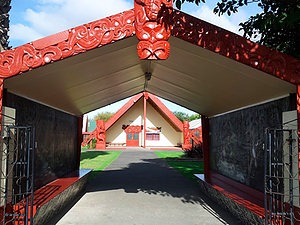A rising tide of gout is being responded to by South Auckland general practice Papakura Marae Health Clinic and National Hauora Coalition (a collective of Māori service providers).
Their gout management improvement project, Oranga Rongoā, seeks to identify Māori and Pacific people with gout and provide them with a culturally appropriate road to optimal management.
The number of people affected by gout is increasing, with Māori and Pacific peoples experiencing five times as many hospital admissions when compared to non-Māori/non-Pacific people says Dr John Wellingham, Chair of the Commission’s Primary Care Expert Advisory Group.
“At least 40 percent of Māori males suffer from gout – and this is thought to be an underestimate as many may not go to their doctor. If they do, they may not be classified as having gout.”

The Papakura Marae Health Clinic serves 3,200 people of whom 95 percent are Māori or Pacific. Many of their enrolled population live in the most deprived neighbourhoods of South Auckland.
Project lead Leanne Te Karu says the Oranga Rongoā project aims to prompt Papakura staff to provide evidence-based management and to educate and empower people so they can self-manage.
“As well as looking for target serum urate levels to be achieved, and therefore for people to need less time off work or make fewer visits to hospital, we also want to see a shift in gout knowledge – both for practice staff and the wider community.”
Dr Rawiri Jansen from Papakura Marae Clinic and the National Hauora Collective says the first step for the team has been to identify every patient who has been classified as having gout or those who may not be classified but have previously been prescribed allopurinol or colchicine as medications used to treat or prevent gout.
“Once someone is identified as having gout, a decision support tool will guide their treatment. This tool is called Mohio, an e-platform used by National Hauora Collective practices, with a built-in decision support system that helps capture key clinical details to tailor gout treatment and track patient follow-up and monitoring.”
Nurse Project Manager Jennell Bonner says, left untreated, gout can be extremely painful and debilitating. “By educating our patients and their whānau about gout, its symptoms, and preventative measures, we can improve health outcomes for our high-needs population and prevent unnecessary suffering.”
Nurse lead Pauline Fitzgerald says poverty is one of the major drivers of ill health in the practice’s population.
“The health service can only go so far, but with our integrated marae service leadership we can provide support, advocacy and innovation. Knowing our community and having a personal rapport and respect promotes strong engagement with whānau.”
“The treatment of gout is a major equity issue. We know that although Māori and Pacific peoples are more affected by gout, they are less likely to regularly receive the preventive drug allopurinol. For the acute attacks, non-steroidal anti-inflammatory drugs may often be prescribed instead, but these are not the best treatment.”
Having carefully diagnosed the extent of the problem, the team is working towards developing change ideas for testing via plan-do-study-act cycles.
GP Dr Marty Davis says they are thinking outside the box to address inequities. “For example, if patients don’t have the means to come to see us, we go out and collect them. Hopefully in a few months we can share our experiences and learnings.”
Oranga Rongoā is one of the three successful initiatives supported by the Health Quality & Safety Commission’s Whakakotahi programme.
The Commission provides advisors, support, training and $6000 to offset costs. The project teams provide the local knowledge and expertise, engagement with community and the collective drive to make a difference.
Read the NZ Doctor article about this initiative.
